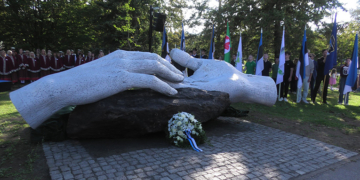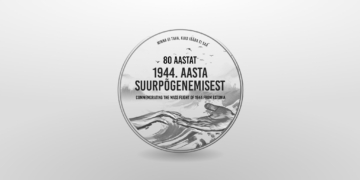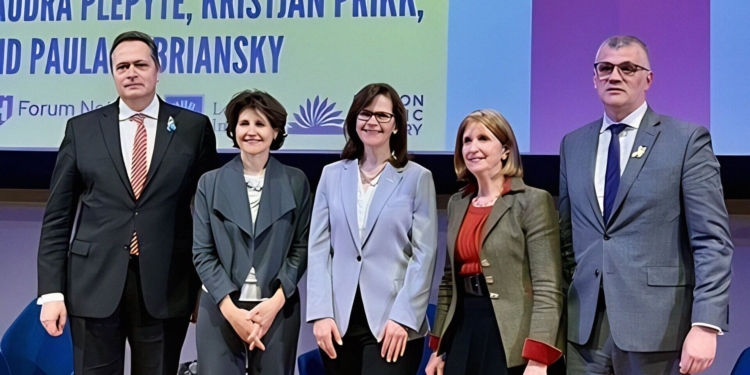Ambassador Kristjan Prikk joined other Baltic ambassadors at a lively panel discussion at the WorldBoston special event, “The State of the State Department & Baltic Security, ” held at the Boston Public Library on Monday evening, April 3. The event was open to the public and nearly 300 people filled the large modern auditorium.
Taking the stage with Ambassador Prikk were Ambassadors Māris Selga from Latvia and Audra Plepytė from Lithuania. The panel moderator was Ambassador Paula Dobriansky, former Under Secretary of State for Global Affairs, and currently a Senior Fellow at the Harvard University JFK Belfer Center for Science & International Affairs.
When asked about the current situation in the Baltics, Ambassador Prikk answered “The situation is tense. The war in Ukraine is existential for us.” Unfortunately foreign affairs are not a high priority with the American public, but fortunately the United States government has been supportive of the NATO alliance in helping to defend Ukraine.
Ambassador Selga spoke about how after years of neutrality, Finland and Sweden want NATO’s presence. Finland’s imminent membership in NATO is welcomed, Sweden is not far behind. He even questioned whether Norway and Iceland would join someday. “Is there a country that says it has too much security?” Ambassador Prikk asked. They all agreed that the Baltics appreciate NATO’s presence in their countries.
Ambassador Prikk said that Estonia is not small, but “compact,” and must be ready to defend itself. He informed us that Estonia has conscription and is devoting more than 3% of its GDP for defense. He talked about how everyone has an obligation to serve, and that even he is in the national reserves and takes part in training every year.
Ambassador Prikk received loud applause when he answered a question from a confrontational member of the audience who was defending Russia’s aggression. The Ambassador gave a snapshot of Estonia’s stormy history, how their eastern neighbor has always been a constant threat throughout history, and how Estonia lost 20% of its population in WW2 through Soviet terror. He talked about how as a boy during the time of occupation he had to be careful what he said.
The program was part of an annual high-level speaking event sponsored by the Future of Diplomacy Project and the Project on Europe and the Transatlantic Relationship by Harvard JFK Belfer Center for Science & International Affairs in collaboration with WorldBoston, the local World Affairs Council affiliate. The series is designed to engage the wider Boston community, where the attendees are a broad cross-section of the public, including business people, members of the WorldBoston community, students, and members of Boston’s large consular corps.
Marilem (Soodla)
Ferentinos




























Reconnect With Your Heritage Language: a Unique Master’s Degree in Tartu Provides a Helping Hand